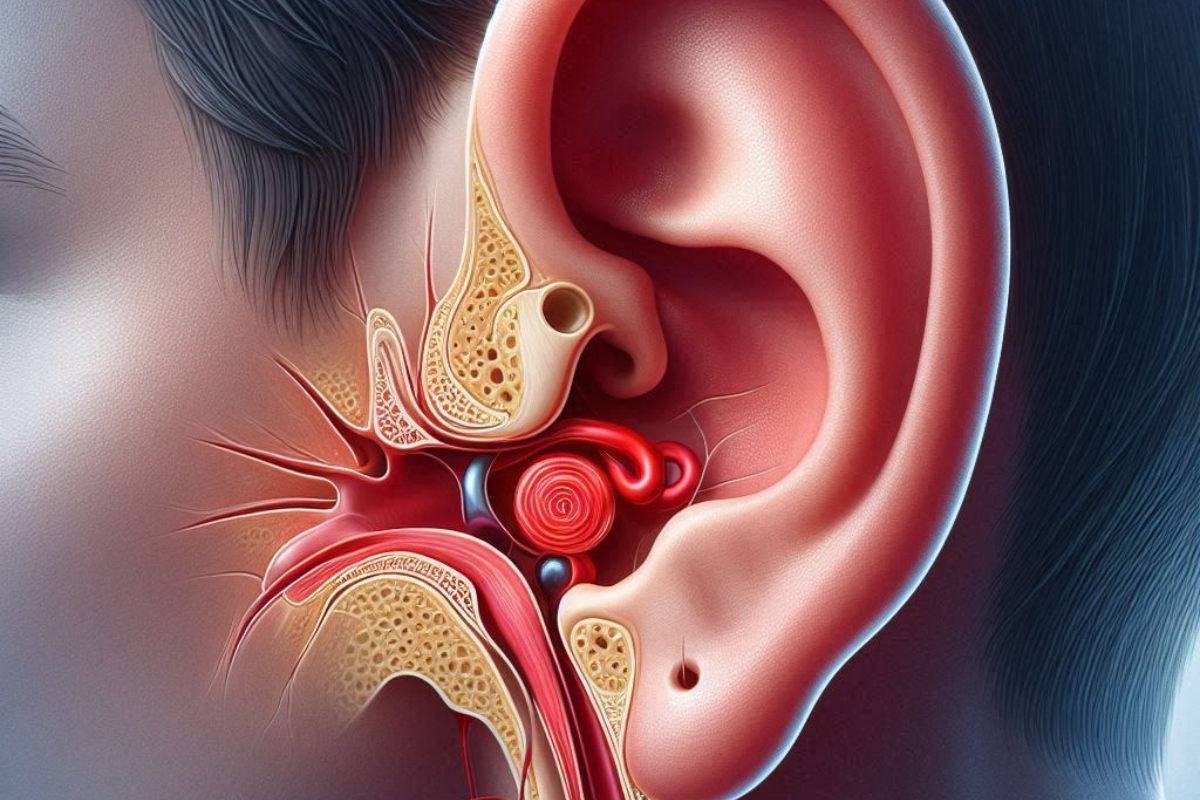Introdução a otite
Um Otitis é uma condição comum que afeta a saúde do ouvido, podendo causar desconforto e complicações se não for tratada adequadamente. Neste artigo, abordaremos as causas, sintomas, tratamentos, diagnósticos, mitos e verdades relacionadas a essa condição. Compreender esses aspectos essenciais é crucial para o manejo eficaz da otite.

O que é otite?
A otite é uma inflamação do ouvido Causado por bactérias ou vírus. Adicionalmente, existem diferentes tipos de otite: por exemplo, otite externa (no canal auditivo), infecção do ouvido médio (atrás do tímpano) e também infecção do ouvido interno (no ouvido interno).
Explorando os tipos de otite: entenda cada forma
Existem três tipos principais:
Otites Externas:
A otite externa é uma inflamação da pele no canal auditivo, Isto é estende do ouvido externo ao tímpano. Além disso, pode ser desencadeada por infecções fúngicas, lesões ou mesmo exposição prolongada à umidade. Portanto, os sintomas comuns incluem dor, coceira, vermelhidão e também inchaço no canal auditivo.
Infecção do Ouvido Médio:
A infecção do ouvido médio é uma inflamação que ocorre na cavidade timpânica, localizada atrás do tímpano, e é particularmente comum em crianças. Tipicamente, é causada por infecções virais ou bacterianas esse resultado no acúmulo de líquido no ouvido médio. Assim, os sintomas comuns incluem dor de ouvido, perda auditiva temporária, sensação de pressão e também Febre.
Infecção do ouvido interno:
As principais causas de otite incluem:
- Infecções bacterianas ou virais: Resfriados e gripes podem levar à infecção do ouvido médio, pois bactérias ou vírus se espalham pela trompa de Eustáquio.
- Acúmulo de líquido no ouvido médio: A disfunção da trompa de Eustáquio pode impedir que o fluido seja drenado do ouvido médio, promovendo o crescimento de bactérias ou vírus e levando a uma infecção do ouvido médio.
- Bloqueio ou lesão no canal auditivo: Infecções fúngicas ou lesões na pele do canal auditivo podem resultar em otite externa
- Fatores ambientais: A exposição prolongada à água, umidade ou substâncias irritantes pode aumentar o risco de otite externa.
- Alergias: Alergias sazonais ou alimentares podem causar inflamação no trato respiratório, aumentando o risco de infecção do ouvido médio.
- Fatores anatômicos: Anormalidades na estrutura do ouvido, como um canal auditivo estreito, podem predispor os indivíduos a infecções recorrentes.
- Tabagismo passivo: A exposição ao fumo passivo aumenta o risco de infecções do ouvido médio, especialmente em crianças.
Sintomas comuns de otite: o que procurar
- Dor de ouvido: A dor de ouvido é um sintoma clássico da otite e um dos mais desconfortáveis para quem a sofre.
- Febre e mal-estar: A otite costuma ser acompanhada de febre e mal-estar, tornando a experiência ainda mais desconfortável.
- Antibióticos e analgésicos: Esses medicamentos são frequentemente usados para combater a infecção e aliviar a dor associada à otite.
- Procedimentos de drenagem de fluidos: Nos casos em que há acúmulo de líquido, procedimentos médicos podem ser necessários para drená-lo e aliviar a pressão no ouvido.
Home Treatment for Otitis
While it is essential to consult a healthcare professional for proper treatment of otitis, some home remedies can help alleviate symptoms. For example, applying warm compresses to the affected ear may reduce pain and inflammation. Additionally, keeping the ear dry and avoiding excessive moisture are recommended practices. However, it is important to seek medical advice before starting any home treatment to ensure it does not interfere with professional care.
Olive Oil Treatment for Otitis
Diagnosis Process for Otitis: Steps and Methods
- Clinical Examination: The diagnosis of otitis usually begins with a clinical examination, where the doctor examines the ear for signs of inflammation, fluid buildup, or pus.
- Audiometric Tests: In some cases, audiometric tests are necessary to assess the impact of otitis on hearing, helping to determine the most appropriate treatment.
Popular Myths About Otitis: What’s True and What’s Not
- “Otitis is Contagious”: A common myth is that otitis is contagious. In reality, otitis is caused by bacterial or viral infections, but it is not directly transmissible from one person to another.
- “Only Children Get Otitis”: While more common in children, otitis can also affect teenagers and adults of all ages.
Truths about Otitis
- The Importance of Proper Treatment: Adequate treatment is essential to avoid serious complications such as permanent hearing loss or more severe infections.
- Prevention of Recurrences: Preventive measures, such as maintaining ear hygiene and treating respiratory infections properly, can help reduce the risk of new episodes of otitis.
Conclusion
Otitis can affect people of all ages, and understanding its causes, symptoms, and treatments is crucial for maintaining good ear health. Debunking myths and reinforcing truths contribute to a better understanding and care of hearing. At the first sign of symptoms, seek medical help for an accurate diagnosis and appropriate treatment, thus preventing complications.
FAQs
- What are the most common symptoms?
The most common symptoms include ear pain, a feeling of a clogged ear, temporary hearing loss, discharge and also fever. - Is otitis contagious?
Otitis itself is not contagious, but the infections that cause it can be. - How is it diagnosed?
Otitis is diagnosed through a physical examination of the ear, complemented by audiometric tests or imaging exams if necessary. - What are the most common myths?
Myths like “bathing causes otitis” or “only children get otitis” are common but unfounded. Otitis can affect people of all ages, and water in the ear does not always lead to the condition. - Is medical treatment necessary for otitis?
While mild cases may resolve on their own, severe otitis cases require medical treatment to prevent complications.